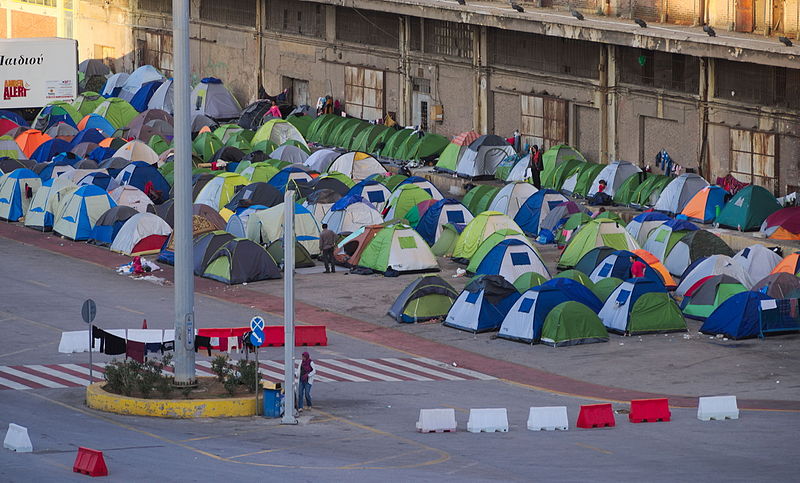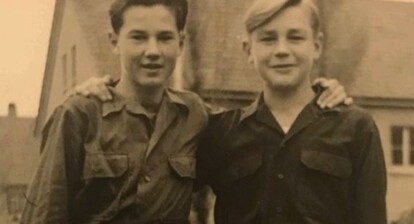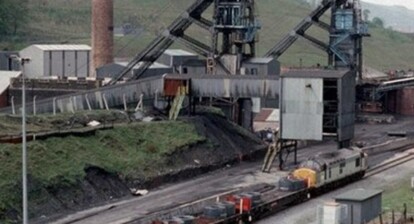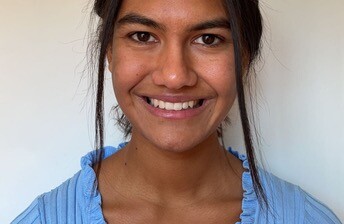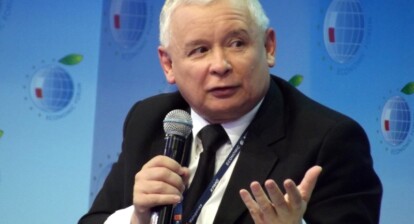In the last months it has become quite silent on Greece media-wise. But is the less coverage also connected to the most urging issues in the last years – debt and refugees? We decided to activate our European network and #CallGreece to get some insights in the actual happenings.
Greece in the Spotlight
After being in the news headlines due to the financial crisis, the refugee crisis brought Greece back to the spotlight. Hundred thousands of people from Syria – and from other countries of the Middle East – were and are still leaving their countries due to civil war, since they do no longer see a future for themselves and their families. Greece has become first stop on their way to Europe, where they hope to be recognized as refugees and be given the opportunity to build a new future in dignity.
After the Europe-Turkey agreement Greece is no longer just a transit for all those people, but it has turned into a new home for many of them. How do this situation and this change affect the country and the Greek people? How the refugees are treated and to what degree are state and society – still suffering under the financial crisis – able to provide a real home and decent living conditions for them? What is the opinion of Greek people on the refugee question and the EU? Our author Fotini Patinari interviewed two young Greeks – Rafaela Tsiligkiridou, a 27-year-old teacher, currently working in Lesvos Island – also known as Lesbos – and Akis Parafelas, a 27-year-old PhD Student with major in Criminal Law – to give us an insight into their perspectives. Here are their answers.
The closure of the Balkan route and the European-Turkish-treaty have changed the situation. After having been a transit hub for refugees, Greece became a (temporary) home for them. Where do you see this change in daily life?
Rafaela: In Lesvos island, which is the Greek island where most of the refugees arrive, the refugee question is always in the centre of the current discussions and is a matter that concerns the locals a lot. As a primary school teacher, here in Lesvos, for me the biggest change in the everyday life since the European-Turkish-treaty, concerns the school and the educational structures. It has started with long discussions, visits and reflections with my twelve year-old students. They have faced a new reality which made them feel insecure and vulnerable. Although they wanted to help those in need – and the majority of the families offered volunteer help in various ways – they faced the stay (following the treaty) as an “invasion”. I mean, the refugees that arrived here are probably going to stay for a longer period than expected in the beginning.
This means that the children are going to attend school here in Lesvos. Is the school ready to welcome the refugee children? And which children? The Syrians or also the children from Afghanistan or Iraq for example? Because the status of each nationality is quite different due to political reasons and due to the way they are projected on the media. As far as the school and the teachers are concerned, we are dealing with a significant change, since from September we are expecting refugee children in the class and the truth is that no special measures and preparations have been made yet and that is something that has to be solved directly, if we want to talk about integration and inclusion.
How does the Greek public, how do your friends react on the refugees? Do they feel left alone or supported?

Rafaela Tsiligkiridou (born in 1989) is from Xanthi, Greece. She is currently working as a primary school teacher in Lesvos island in Greece. (Foto: Private)
Rafaela: In my opinion the public in general is confused or maybe ambivalent about this issue because of the way the EU and the NGOs handled the situation here on the island and the balance and the everyday life changed significantly, when the refugee crisis began. The local community needed to adapt to the new conditions. In the centre of the discussion is very often the work of the NGOs: on the one hand they offer help to the refugees and new employment possibilities for the locals, but on the other hand raises the question if their work is really altruistic or it has more to do with profit.
Local Solidarity vs. Impersonal Assistance
Mostly the locals appreciate the work of the coastguard, because the coastguard policemen are people from the island and therefore it is very personal for the locals. All of us can recall images – really popular in the media – of them trying to rescue people arriving on Greek eastern islands. On the other hand, the state and the EU are in this case impersonal constitutions that are not helping in the same way. Regarding the refugees, as I mentioned before, I have the impression that the Syrians are most welcome in comparison to other ethnicities. In their appearance and their attitude they are more similar to those of the locals; furthermore they are given the ‘refugee’ image by from the media.
Akis: I think that the majority of the people reacted overwhelmingly positively and showed solidarity for the refugees. Maybe this is because the Greek people have experienced being refugees, too, and this experience survives in the collective memory of the people. You could see older people and younger offering their help voluntarily, even people who could barely live themselves financially. Of course there was also the opposite reaction, I mean people who reacted totally negative against the refugees. But I think that these reactions have been rejected by the majority of the population.
The refugee question as well as the negotiations about the Greek financial debt have shown a gap between Greek and EU politicians. Has this changed your personal attitude towards Europe? If yes, in which means?
Rafaela: Well, this question is hard to answer. As a general remark I would say that the “ideal” of the EU, as something supportive and progressive, has started to “crack” and that there are significant “breaches” in the relation between the EU and Greece nowadays. We also saw the “other” side of this ideal called “Europe” and it is a quite cruel side. So I guess the words that most describes the image of the EU in Greece today is “disputed and challenged”. The refugee crises reinforced this image, since the interventions and the support from the EU are partial and not well coordinated. Especially after the referendum the question was very clear: do we really belong in the EU or not?
EU’s Role in the Refugee Crisis
Akis: From my point of view, the refugee crisis has made very clear the gap between the EU mechanism and the people of the EU in general. Personally, I never had such a positive attitude towards the way that the EU functions and I think that in the case of Greece we saw its true colors. The provisions of the EU provided better conditions for producing wealth for the few and in the same time deteriorated the living conditions for the majority of the population. For me the EU right now functions in many aspects antidemocratically.
In my opinion, EU as institution shares to a great extend the responsibility for the way the refugee crisis has developed. The fact that the majority of the EU states are also NATO members and their involvement in the conflicts in Middle East are for me the deepest cause of the refugee crisis. Therefore we could say that from this point of view the EU politics are currently characterized by hypocrisy. From the one side EU takes initiatives in order to promote peace, and from the other side thousands of refugees are “trapped” in the south. The same logic applies in the case of the refugee camps that function mostly as ghettos. Thousands of people – with urgent needs – are in reality excluded from the society. This situation really makes me worry and causes me anxiety about the future.
Premier Tsipras has announced a constitutional reform. What do you think about his ideas? Which are possible advantages, which disadvantages?
Akis: I think that any constitutional reform right now will cause reactions […]. Containment of democratical rights, enforcement of the state intervention due to “safety reasons”, containment of the labor rights, these are the changes that are on the table right now and I don’t think that they are good omens for the majority of the people.
One of the supposed changes will bound the state to be neutral in religious matters instead of supporting the Orthodox Church. Would this change Greek society? Would it affect young Geeks?
Rafaela: Well, I think that this is a question that is going to be discussed a lot and to create a lot of arguments. For me and for many young people this is a change that should have happened a lot of earlier and is self-evident for a modern society. The reasons that this change hasn’t happened until now are mainly political and historical. Since the creation of the Greek state in the 19th century the Greek identity as well as the Greek society have been ‘build’ and bound with the Orthodox Church.
Many Greeks feel ‘insecure’, if this part of their identity is set under question. For example, in school, despite the changes in the Curricula in the name of intercultural education, there is still ‘religion’ as a subject, many religious symbols in the school buildings and some routines that follow the Orthodox Calendar. Unfortunately, I don’t think that the school, the parents and the society in general is right now ready to accept such a change. They might perceive this as an attempt that alienates their identity. For me it is very important to start emancipating and finally construct our identity on the new conditions and developments.
Role of the Church in Crisis Management
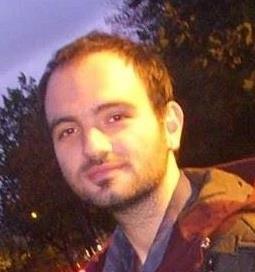
Akis Parafelas (born in 1989), is from Thessaloniki, Greece. After having completed a Master Degree in the UK he is back in Greece doing his PhD in Criminal Law. (Foto: Private)
Akis: I don’t think that this change is going to happen. During a period of crisis, like the one we are experiencing right now, the role of the church – that is to contain the dissatisfaction – is something very crucial and the governments are aware of that. In my point of view, what is more possible to happen is to be given more freedom to other religious groups. Nevertheless, the refugee question could in this case exacerbate the situation. Of course this kind of change is not enough. It is a fact that Greece belongs to the states where the late enlightenment didn’t manage to promote secularism. I am afraid that this change will not happen in the near future and that it needs something more radical, in order to succeed.
What is (at the moment) the issue according to the current situation in Greece that concerns you the most?
Rafaela: Well, if I think on a ‘local‘ level, the refugee crisis is very intense right now on Lesvos, it is something that affects everybody on the island and is something that concerns me a lot as a person and as a teacher. On a more ‘general‘ level what concerns me the most – which is also related to the refugee crisis – is the rise of the extreme right-wing forces here in Greece and in Europe in general.
These racist tensions constitute a real danger that threatens democracy on every level and are gaining popularity everyday unfortunately. For example, there are reactions from parents, from teachers and from the local community in general that are against the refugees and promote a racist and extreme discourse. Where is this situation going to lead us? Is this the kind of Europe we want to build? The fear, the financial crisis and the loss of identity are reinforcing these tensions. What is going to happen next and how is Greece and Europe in general going to react to it? This is what concerns me the most.
Akis: For me the major problem right now is the unemployment. When it comes to young people under the age of 30, one out of two can’t find a job, support themselves and live in dignity. This is a tragedy. A whole generation is unable to dream and plan the future in its country.
Interview and translation from Greek: Fotini Patinari

